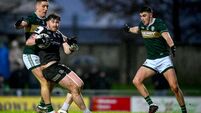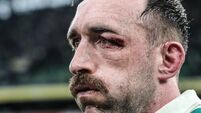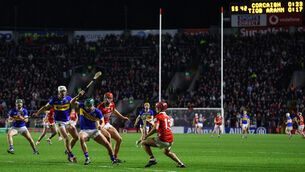OBITUARY: Davy Walsh, former Irish soccer international

Davy Walsh, who passed away on March 14 last, was one of the Irish soccer players who lined out for both Ireland teams, north and south of the border, but the Waterford native enjoyed a long and successful career as a natural goalscorer in the old English First Division.
Matt Keane, doyen of Waterford soccer historians, sketches Walsh’s background in the southeast.









